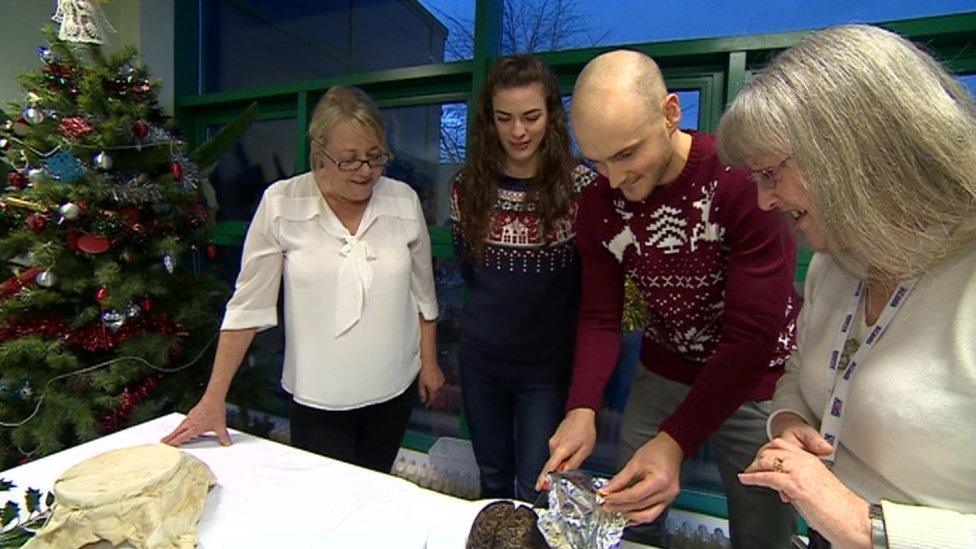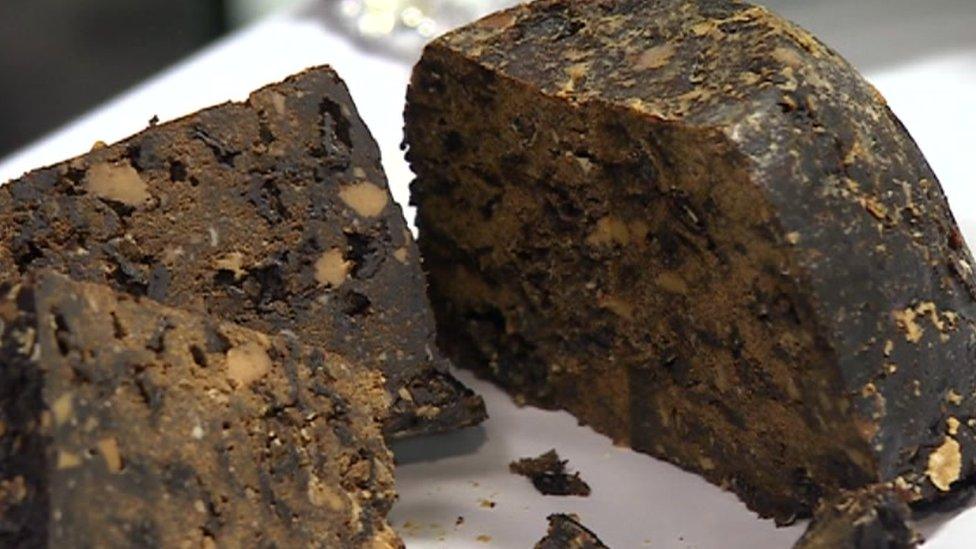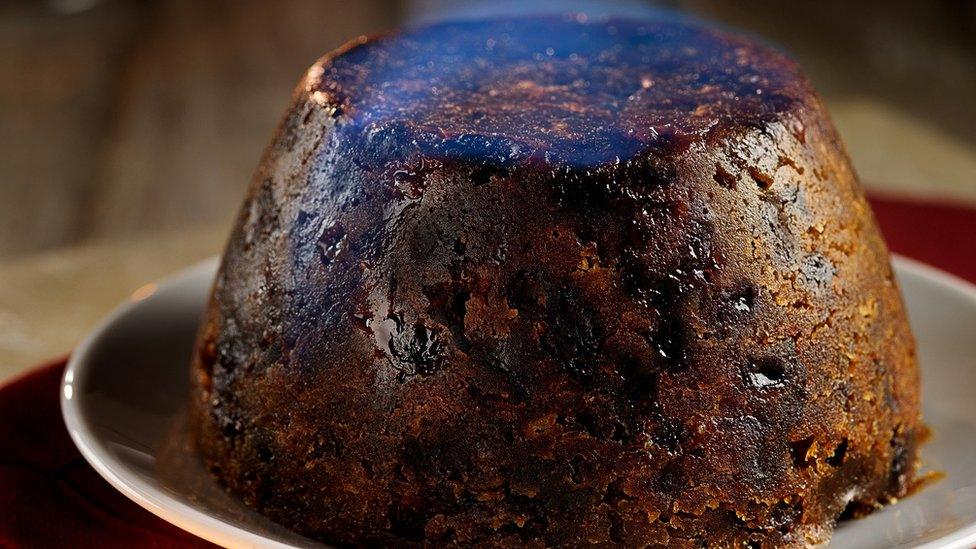Decades-old Christmas pudding tastes 'amazing'
- Published

The pudding was taken to the University of Nottingham for testing by microbiology staff and students
A 46-year-old Christmas pudding unearthed during a house clearance has been declared "dry" but tasty by food experts.
The pudding was donated to the microbiology department to see if it was still fit to eat.
University of Nottingham's Professor Christine Dodd was convinced it posed no threat to her students as it was steamed for five hours first.
The verdict: "It tastes amazing - honestly!"
The pudding, which contains fruit, bread crumbs and brandy among other ingredients, was located in the kitchen of a house.
Updates on this story and more from Nottinghamshire
Professor Dodd said the results from laboratory tests would not be ready until after Christmas - but the tasters all agreed it was "a little bit dry but very good flavour".
She said any bacteria in the pudding would not have survived the five hours of steaming - and the potent combination of alcohol and fruit.

The Ultimate Christmas Pudding

The 1969 pudding was made for a wedding in Nottinghamshire but not actually tasted for another 46 years
Christmas pudding was described in 1732 as "a haggis-like sausage served on Christmas day filled with suet, fruit, spices, and mixed with eggs and oats soaked overnight in milk"
The oldest recipes are very similar to the ones we use today
Traditionally a silver coin (sixpence) was hidden inside the pudding
Its high alcohol content prevents the pudding from spoiling
The pudding was originally boiled in a pudding cloth, but later put into a basin and steamed
They are often decorated with a sprig of holly
Source: BBC Food and History Today, external

The researchers were told the pudding was made for the wedding of a relative in 1969 and has the date marked on it.
"We were interested to see just how well it had kept," Professor Dodd said, adding they wanted to see "whether there was anything still 'live' in there and what condition it was in".
The laboratory results will take several weeks to complete and will be put on the university website.
- Published5 December 2015
